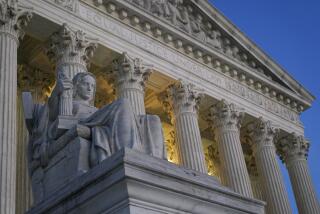Editorial: What we don’t know about the killing of Anwar Awlaki
Two and a half years after a drone strike in Yemen killed New Mexico-born Anwar Awlaki, a federal appeals court has ordered the Obama administration to release a confidential memorandum that explains the legal justification for its extraordinary decision to assassinate a U.S. citizen. The administration should promptly comply.
Monday’s unanimous ruling by a three-judge panel of the U.S. 2nd Circuit Court of Appeals was the result of a lawsuit by the New York Times and the American Civil Liberties Union to force release of a memo prepared by the Justice Department’s Office of Legal Counsel.
A federal district judge had ruled that the memo and other materials were covered by an exemption in the Freedom of Information Act for classified materials and internal government deliberations. But after that decision came down, a 16-page Justice Department “white paper” was released that contained an explanation of the legal theory behind the killing of Awlaki. The appeals court concluded that publication of that document, coupled with public statements by administration officials, amounted to a waiver of the exemption.
It has been clear since the release of the white paper in February 2013 that the administration believes it may legally kill a U.S. citizen abroad if he is a “senior operational leader of Al Qaeda or an associated force” who can’t easily be captured and who poses “an imminent threat of violent attack against the United States.” (The administration’s definition of “imminent threat” is alarmingly elastic.)
Still, release of the actual memo, even with redactions to protect sources and methods, would provide important context. Instead of appealing the 2nd Circuit’s ruling, the administration should announce that it will abide by it. Not only that, it should make good on the president’s statement in a speech last May that he might be open to additional oversight of presidential decisions to use deadly force against Americans — including, potentially, “the establishment of a special court to evaluate and authorize lethal action.”
Executing an American without trial — even one who has allied himself with terrorists — can be justified only if he poses a truly imminent threat to Americans and can’t be safely captured. But by refusing to fully explain its rationale, and asserting the “state secrets privilege” in seeking to block a lawsuit by Awlaki’s family, the administration made it look as if it had something to hide.
The government must be forthcoming not only about the legal rationale for this extraordinary act of violence but also about the factual evidence. That is a standard the administration has failed to meet in the Awlaki case.
More to Read
A cure for the common opinion
Get thought-provoking perspectives with our weekly newsletter.
You may occasionally receive promotional content from the Los Angeles Times.










